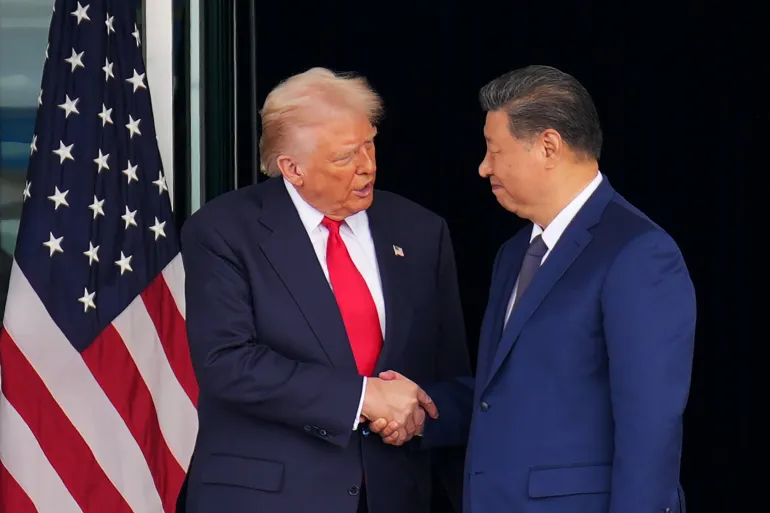President Donald Trump called his meeting with Chinese leader Xi Jinping in South Korea a “12 out of 10,” announcing plans to lower tariffs and restore trade flows between the two largest economies in the world.
Speaking aboard Air Force One, Trump said the United States will cut tariffs on chemicals used to make fentanyl from 20 percent to 10 percent, dropping China’s overall tariff rate from 57 percent to 47 percent. “The meeting was a 12,” Trump told reporters. “We got results.”
Treasury Secretary Scott Bessent confirmed that China will purchase 25 million metric tons of U.S. soybeans each year for the next three years, beginning with 12 million metric tons by January. He described it as a major win for American farmers who have been squeezed by the prolonged trade dispute.
Trump also revealed plans to visit China in April, with Xi expected to make a return trip to the United States later in the year. The two leaders discussed new pathways for exporting advanced computer chips, and Trump hinted that a broader trade deal could be signed soon.
Xi urged both nations to “take the long view,” saying it is natural for world powers to face friction but essential that they focus on cooperation over retaliation. The tone signaled a possible cooling of tensions that had escalated sharply over the past year.
Still, challenges remain. The U.S. and China continue to compete for dominance in manufacturing, artificial intelligence, and global influence, including over conflicts such as the war in Ukraine. Trump’s renewed use of tariffs and China’s restrictions on rare-earth exports have made the stakes higher than ever.
Analysts caution that the latest truce may bring short-term stability without resolving deeper conflicts. “Both sides are managing volatility, calibrating just enough cooperation to avert crisis while rivalry endures,” said Craig Singleton, senior director of the China program at the Foundation for Defense of Democracies.
Markets responded positively to the news, with investors betting that the easing of tariffs could boost trade and stabilize global supply chains. Whether this marks a lasting peace or another pause in the trade war remains to be seen.

